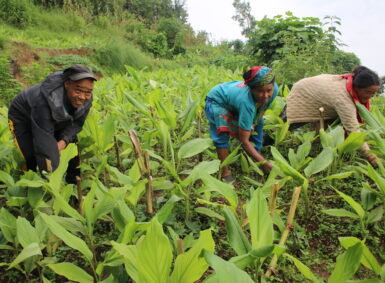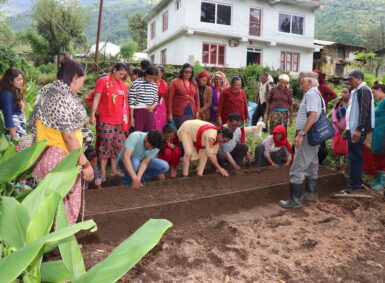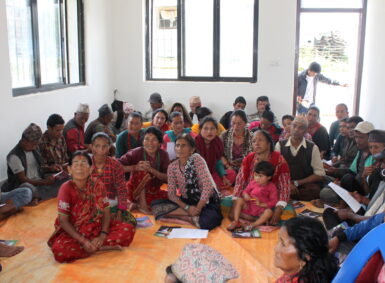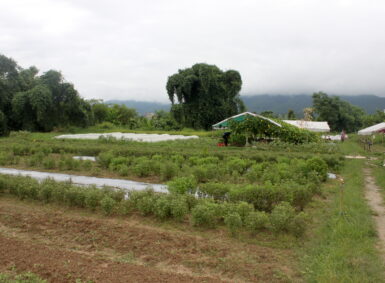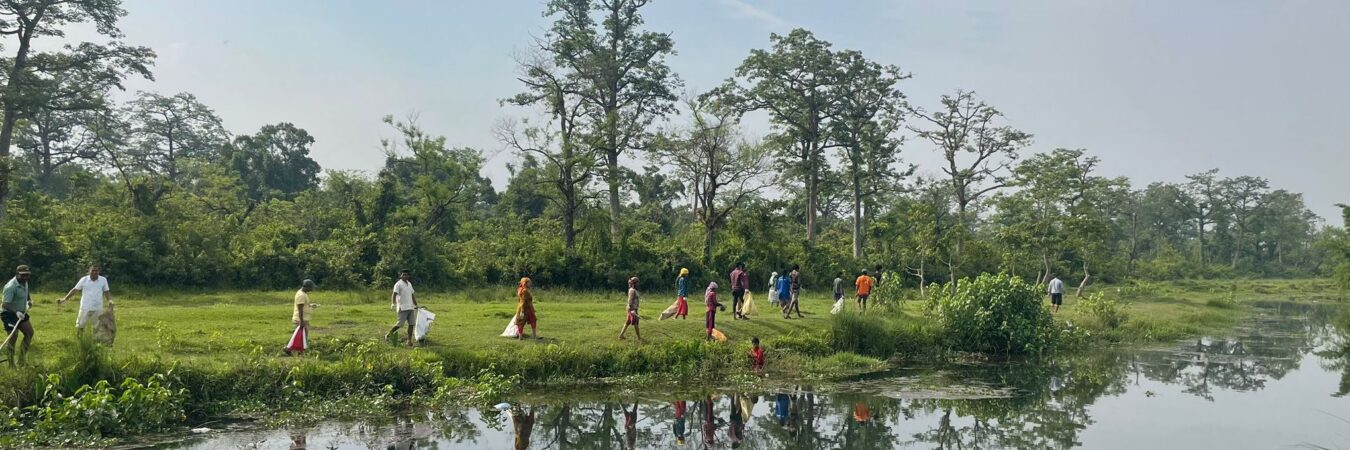
Nature conservation and agroforestry production in rural communities
- Starting Date:
- September 1, 2021
- Ending Date:
- August 31, 2024
- Location:
- Nawalpur district
- Donor(s):
- International Climate Initiative (IKI) on behalf of the Federal Ministry for the Environment, Nature Conservation, and Nu-clear Safety (BMU) & Manfred-Hermsen-Stiftung for Nature Conservation and Environmental Protection
The project area connects the Chitwan National Park with the Himalayan foothills and is a biodiversity hotspot, inhabited by forest user communities with traditional knowledge of the ecosystems and the use of medicinal and aromatic plants. After almost 2 decades of political unrest, Nepal regained stability and is opening up with urge for economic growth. With increasing trends of unsustainable land use, and many conflicting industrial and infrastructure projects on the rise, there is an urgent need to raise awareness, build alternative development perspectives, and protect nature. This project addresses these challenges, making crucial contributions to conserve forests and biodiversity, protect climate and build resilience, contribute to human well-being and sustainable development, as envisioned by the National Biodiversity Strategy and Action Plan. Synergies with IKI and other key projects will be developed and the implementation of the Nationally Determined Contributions supported.
This project will contribute to climate protection and biodiversity conservation and build resilience for ecosystems and forest user communities, bringing over 20,000 ha of forests and 1,000 ha of farm land under improved management, and benefitting 30,000 ha indirectly through incentives and demonstration effects. A significant contribution will be made to the protection of at least 10 rare or globally endangered vertebrate species, including Panthera tigris, and many plant species, restoring habitats and improving their connectivity. Reduction of emissions and sequestration of carbon will result from improving the soil´s humus layer, preventing forest fires, and tackling the overexploitation of forest resources and unsustainable farming practices, fostering biodiversity in farmland and forests. About 30,000 people, including marginalized groups, women, youth and elderly people, will benefit directly, and about 100,000 people indirectly from local and regional development through biodiversity and climate friendly land use and production, maintenance of ecosystem services, and improved resilience.
IEC MATERIALS
PROJECT FLYER (ENGLISH VERSION)
PROJECT FLYER (NEPALI VERSION)
TOOLKIT ON ORGANIC FARMING PRACTICES (ENGLISH VERSION)
TOOLKIT ON SUSTAINABLE HARVESTING OF NTFPS (ENGLISH VERSION)
REPORT ON BASELINE FOREST CARBON ASSESSMENT IN EASTERN NAWALPARASI, NEPAL
VIDEO
NATURE CONSERVATION AND COMMUNITY DEVELOPMENT IN NAWALPUR DISTRICT
NEWS
FOREST FIRE PREVENTION AND CONTROL AWARENESS CAMPAIGN
WORLD ENVIRONMENT DAY 2022
WORLD EARTH DAY 2022
PROJECT INCEPTION WORKSHOP
COMPLAINTS PROCESSING & RESOLUTION
Individuals, organizations and interested stakeholders may raise feedbacks or complaints on the governance of the project, and other issues specific to the project.
For Independent Complaint Mechanism (ICM) of the International Climate Initiative (IKI) funded projects including this, please click the link IKI ICM.

